Your Child's Hospital Journey
Flat Feet
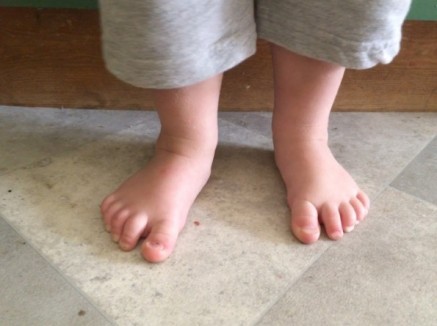
The picture shows normal foot position for a 2 year old child.
Before the age of 3 all children have flat feet, as the arch on the inside of the foot does not begin to develop until after this age. As they grow and walk, the soft tissues along the bottom of the feet tighten, which gradually shapes the arches of the feet.
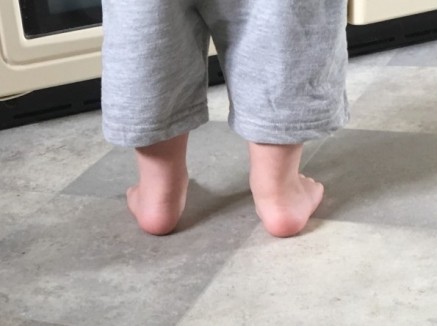
In older children a flat foot is when this arch is apparently absent or reduced in standing.
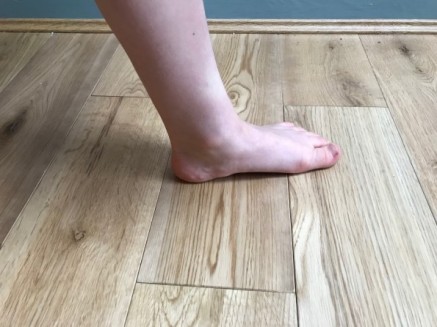
The arches may ‘appear’ when your child is sitting, when the big toe is bent backwards or if your child stands on tiptoe. This is known as a flexible flat foot or Pes planus.
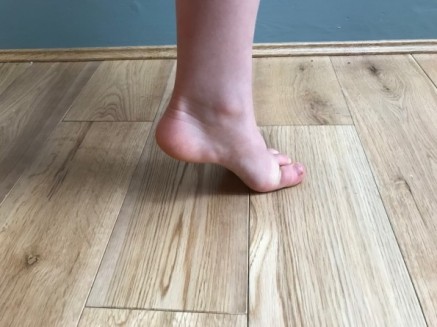
Flexible flatfoot is common in children. While parents often worry that an abnormally low or absent arch in a child's foot will lead to permanent deformity or disability, most children eventually outgrow flexible flatfoot without developing any problems in adulthood. The condition is usually painless and does not interfere with walking or participation in sports. If your child’s flexible flatfoot does not cause pain or discomfort, no treatment is needed.
However, if your child complains of foot, ankle or knee pain, or has poor balance, or poor stamina in walking, then a referral to see a physiotherapist may be necessary. They can then assess the problem and treat appropriately if required.
Treatment
Treatment for flexible flatfoot is required only if your child is experiencing discomfort from the condition.
Treatment for a more severe or painful flat foot can consist of exercises and/or stretches for your child to do. It can also include your physiotherapist referring your child to an Orthotist or Podiatrist who specialise in providing corrective devices such as arch supports (insoles) to put in your child’s shoes. Most children with painless flexible flat feet do not need any treatment. Insoles will not change the shape of the foot and are therefore not a ‘cure’; they simply hold the foot in a better position so that it can work more effectively and may help reduce some of the symptoms.
Supportive footwear is always recommended for your child's feet.
Stretching exercises. If your child has activity-related pain or tiredness in the foot, ankle, or leg, stretching exercises for the heel cord may be of help.
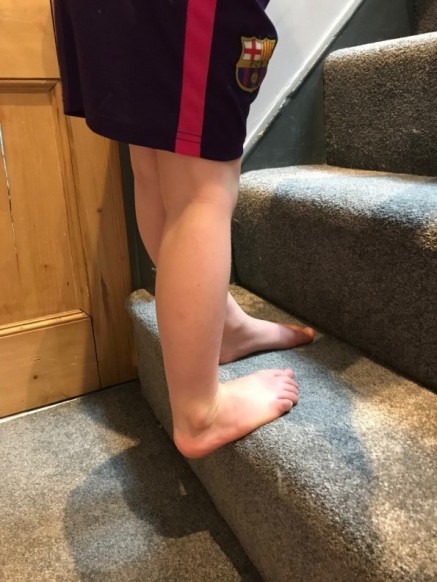
Place one foot fully on the bottom step. Shuffle the other foot half off the step. Allow the heel to drop down, keeping the knee straight until a stretch is felt (this should not be painful). Hold for 30 seconds, repeat 3 times each side.
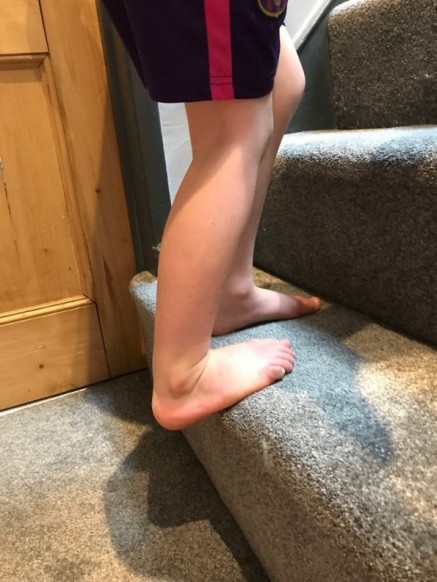
Next ask the child to keep their foot in the same position, heel dropped. This time they should bend the knee. A stretch will be felt in the lower calf. Hold for 30 seconds, repeat three times each side.
